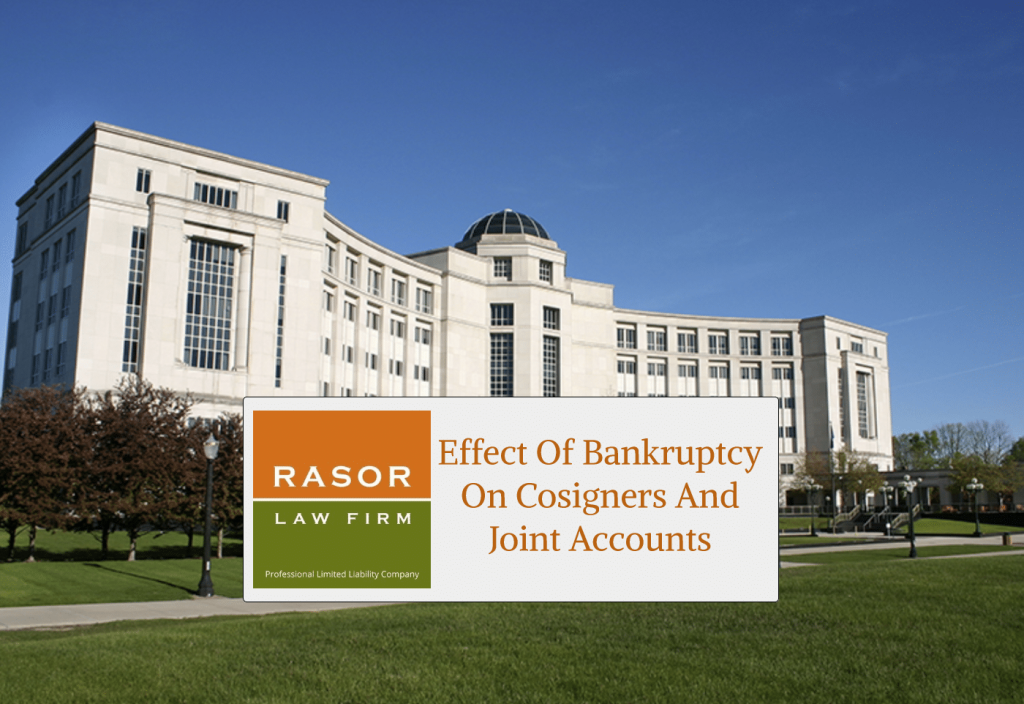Facing bankruptcy is never easy. It can feel overwhelming emotionally and financially for anyone. But the effects often extend beyond just the individual filing. If you’ve cosigned a loan or share a joint account with someone declaring bankruptcy, you’re likely wondering how this situation could impact you. Understanding cosigner bankruptcy effects is crucial, particularly if you’re now responsible for debts you didn’t originally plan to bear alone. Cosigners, despite not being the primary borrower, can be left on the hook for unpaid debts if the original borrower files for bankruptcy. Similarly, joint account holders may find their credit or financial stability compromised. These effects can be long-lasting and confusing, making it important to know your rights and obligations. In this blog post, we’ll walk you through everything you need to know about the impact of bankruptcy on cosigners and joint account holders, especially in Michigan. We’ll dig into how the process works, what scenarios you should prepare for, and tips for handling this situation effectively. Whether you’re a concerned family member, friend, or business associate, this information is designed to help you navigate these financial complications with clarity and confidence.
Understanding what happens to cosigners during bankruptcy
Cosigner bankruptcy effects refer to the financial and legal consequences that arise when someone who cosigned a loan with another party ends up dealing with the aftermath of that individual filing for bankruptcy. A cosigner essentially promises a lender that they will repay a loan if the primary borrower cannot. This shared responsibility means that lenders can still come after the cosigner, even if the borrower has declared bankruptcy.
For example, suppose you cosigned a car loan for your sibling. If your sibling declares bankruptcy and walks away from the debt, the lender may turn to you for the remaining balance. Another scenario might involve a joint credit card. If one cardholder files for bankruptcy, the remaining holder could be pursued for the total balance.
Cosigning does not just show trust between parties, it also creates a legal tie that can emerge unexpectedly if one party runs into financial trouble. Therefore, understanding how these situations are handled, especially within a state like Michigan, is essential to making informed financial decisions and protecting your personal credit.
Why understanding cosigner bankruptcy effects is important
The ripple effects of bankruptcy can create real challenges for cosigners and joint account holders. Even if the debt wasn’t yours initially, your legal commitment can quickly catch up with you. This is why understanding cosigner bankruptcy effects is crucial for protecting your financial well-being. When a person you’ve cosigned with files for bankruptcy, creditors may immediately redirect their collection efforts towards you. This could result in wage garnishments, negative credit reports, and mounting financial stress.
In these situations, even relationships can suffer. Family members or friends who once relied on each other financially may find themselves in conflict. Michigan law offers certain protections, but many cosigners are still shocked when the consequences begin appearing on their credit reports or when collection agencies contact them directly. Here are a few common scenarios that highlight the consequences of being a cosigner during someone else’s bankruptcy process:
- Scenario 1 and consequence 1: A parent cosigns a private student loan for their child. The child files for bankruptcy, and the lender sues the parent for the remaining balance.
- Scenario 2 and consequence 2: Two friends have a shared credit card. One friend files for bankruptcy. The other friend’s credit score drops due to increased utilization and missed payments.
- Scenario 3 and consequence 3: A business partner cosigns a small business loan. The business owner files for Chapter 7, and the cosigner’s personal assets are at risk of collection efforts.
Steps to handle cosigner-related bankruptcy issues in Michigan
- Step 1: Review the bankruptcy paperwork to see if the cosigned loan is listed and whether the type of bankruptcy filed affects the cosigner’s liability.
- Step 2: Contact the creditor directly to understand the status of the loan. Ask whether they intend to pursue payment from the cosigner.
- Step 3: Seek legal assistance from a bankruptcy or creditor rights attorney in Michigan to discuss potential defenses or repayment arrangements.
Tips for wisely handling cosigner bankruptcy consequences
Questions commonly asked about cosigner bankruptcy impacts in Michigan
How Rasor Law Firm supports clients in cosigner bankruptcy cases
Rasor Law Firm brings years of experience in bankruptcy, creditor rights, and debt defense cases throughout Michigan. If you’re facing stressful consequences as a cosigner or joint account holder, our team works diligently to evaluate your financial exposure and create a path forward. We don’t just offer legal advice, we strive to restore peace of mind and financial stability. Our attorneys stay current with Michigan’s bankruptcy laws and provide compassionate guidance you can trust. Whether negotiating with creditors or representing you in court, we are committed to protecting your interests and securing your future. We understand that these cases involve more than numbers, they involve relationships and your sense of control. Let us help you navigate this complex situation efficiently and effectively.


